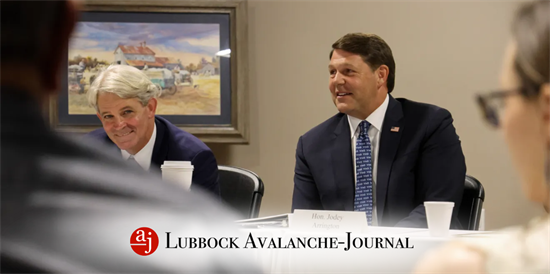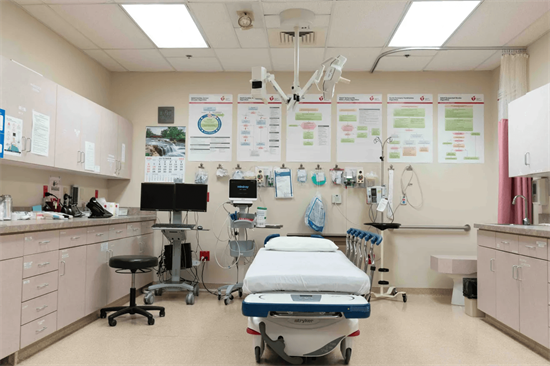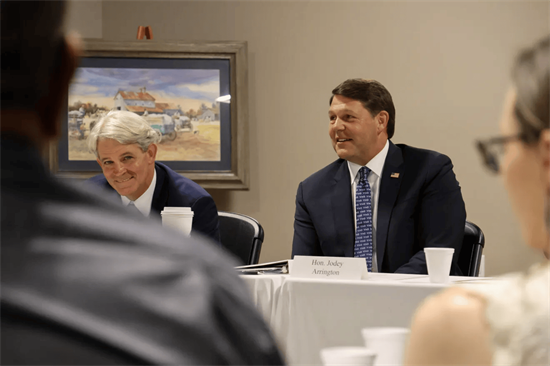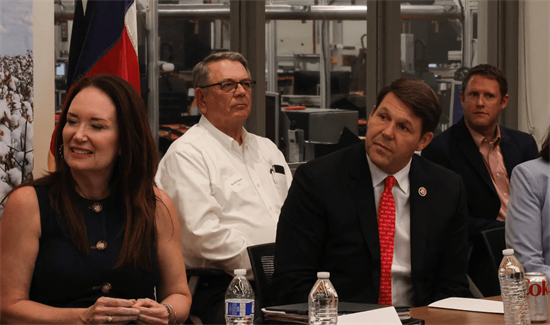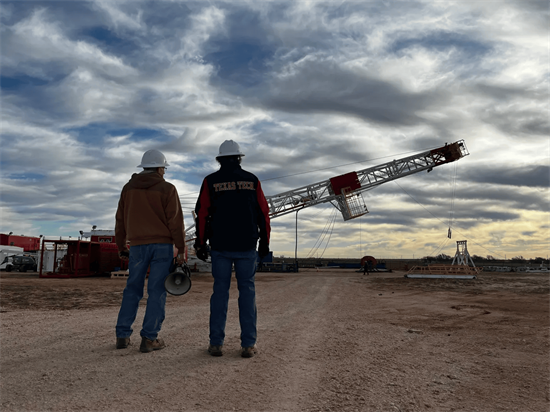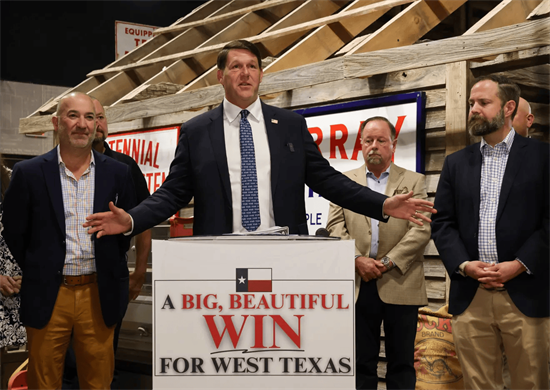In the News
U.S. Rep. Arrington talks future of rural healthcare, agriculture, America's energy sector
Washington,
August 1, 2025
U.S. Rep. Arrington talks future of rural healthcare, agriculture, America's energy sectorBy Mateo RosilesAugust 1, 2025 AS SEEN IN THE LUBBOCK AVALANCHE-JOURNAL While the U.S. House was on its summer break, U.S. Rep. Jodey Arrington was back in West Texas this week, giving a preview of upcoming legislation he hopes to champion in the coming months. Arrington, a Lubbock Republican who chairs the House Budget committee, will head back to Washington, D.C. in the coming weeks, but has already or will be filing bills that stem from or build on his latest win — passage of the One Big Beautiful Bill. Working to help rural hospitals, lower healthcare costs "I'm still working to strengthen our rural hospitals so that we continue to provide access to basic care for our small towns and our families," Arrington said during a visit with the Avalanche-Journal Wednesday in Lubbock. He is currently working on this in the House Ways and Means Committee through the Second Chances for Rural Hospitals Act, which was included in the OBBB but was removed at the last minute.
For context, the Second Chances for Rural Hospitals Act would expand eligibility requirements by allowing hospitals that have been closed since 2014 to become a Rural Emergency Hospital and receive the additional funding included with the designation. Arrington previously told the A-J that if the bill were to pass, it would allow two additional previously closed rural hospitals in Texas and 20 rural hospitals nationwide to have a second chance at serving their communities. But that's not the only healthcare initiative the congressman is working on. He's also looking at ways to lower the cost of healthcare. "I agree, healthcare costs are too high, and our healthcare system is way too inefficient in our country, and it shouldn't be, because we have the best technology, we have the best healthcare providers, the best facilities, but we're one of the most inefficient systems, and that is, I say that to our shame as a country," Arrington said.
To achieve this, Arrington said it's time for the government to back out of healthcare, as he says federal intervention has made the system inefficient. But Arrington also said there is still a role the government has to play in healthcare, overseeing the "monopolies" of the pharmaceutical, insurance and hospital industries. "I've got legislation I'm working on that stops pharma companies from gaming the patent system so that they can continue to have what we call exclusive rights, or what I call a monopoly on their medicine without competition, and it keeps the price of those drugs artificially high," Arrington said. Agriculture remains front and center of Arrington's plans One of Arrington's accomplishments through the OBBB was to codify and update the heart of the Farm Bill — the farm safety net. "But we're working on the remaining component parts, like ag science and research, like the conservation title in the Farm Bill," Arrington said. "So we're working to make sure we finalize and a complete Farm Bill." But while legislation is one thing, Arrington is hoping to see trade deals that help strengthen the West Texas agricultural industry.
To do that, Arrington said he is working with President Trump to secure those deals, touting recent trade deal wins with the UK, Indonesia, Japan and the European Union. "That's a huge part of getting the right policies and the right economic conditions for our nation to grow and prosper in keeping taxes and regulations low, incentivizing people to go to work who are capable of working, but also making sure that we have a level playing field with our manufacturers and producers, these would be other countries and other trade partners," Arrington said. Another non-legislative item Arrington has been a strong vocal proponent of was the 10,000% expansion of the Muleshoe National Wildlife Refuge that Trump's Administration just recently put a stop to. Working on making America energy independent Again, another issue Arrington was able to address in the OBBB was unleashing America's domestic energy industry. "We included those reforms in the big, beautiful bill so that it doesn't take a lifetime just to get a permit for more infrastructure like pipelines or an export terminal, so we can actually ship our natural gas to allies, for example, in Europe, in defense against our shared adversary of Russia," Arrington said. Scaling back previously in place government regulations, Arrington said, helps private entities compete again, which in turn helps foster innovation and drive the energy industry forward.
"If we don't unleash and unshackle our energy producers in this country, not only will we have higher prices at the pump and higher electric bills for our homes, we will surrender energy production to China and Russia and others who are the biggest polluters when it comes to energy production," Arrington said. But there is also another side to things, as new technology like Artificial Intelligence is starting to become a large consumer of energy.
Just a few months ago, the Texas Tech University System and Fermi America announced plans to construct the world's largest Advanced Energy and Intelligence Campus in the Texas Panhandle. While the campus is outside of Arrington's district, it does set the stage for the future growth of AI in West Texas "One of the attractive qualities of West Texas for these data centers and AI facilities is that we are energy-rich," Arrington said. "If they can tap the energy around us, both fossil and renewable, it's going to be able to support the advancements in AI, America's leadership in AI, and all the value that AI brings to our economy by making industries and our economy more efficient." |


